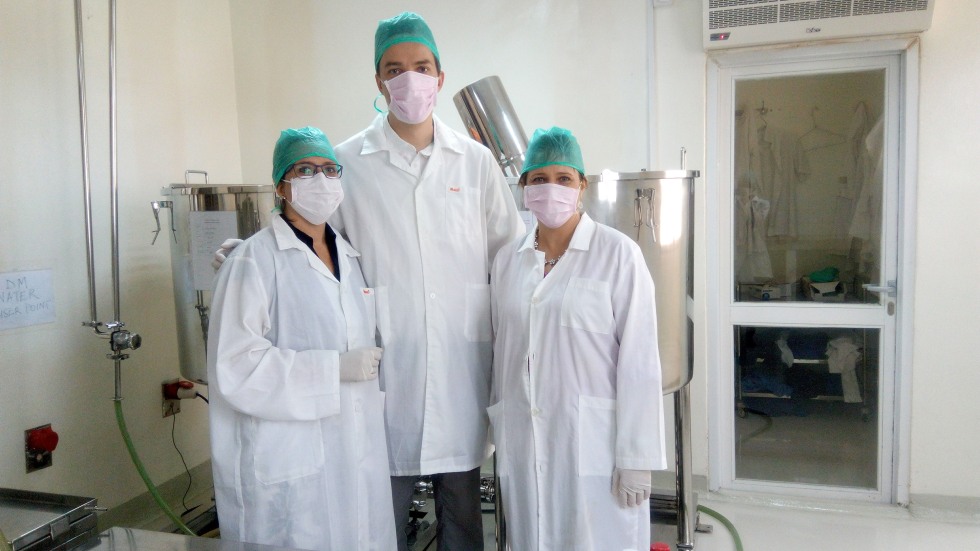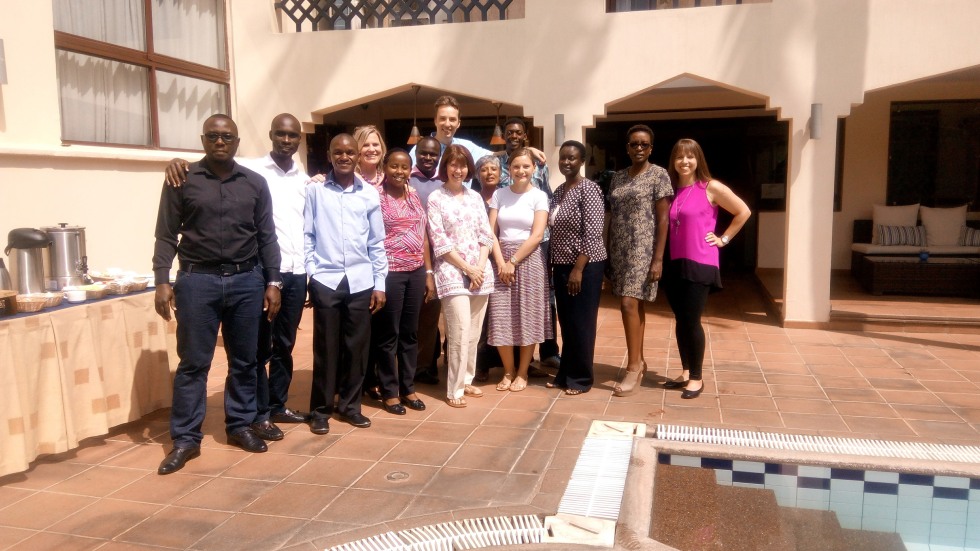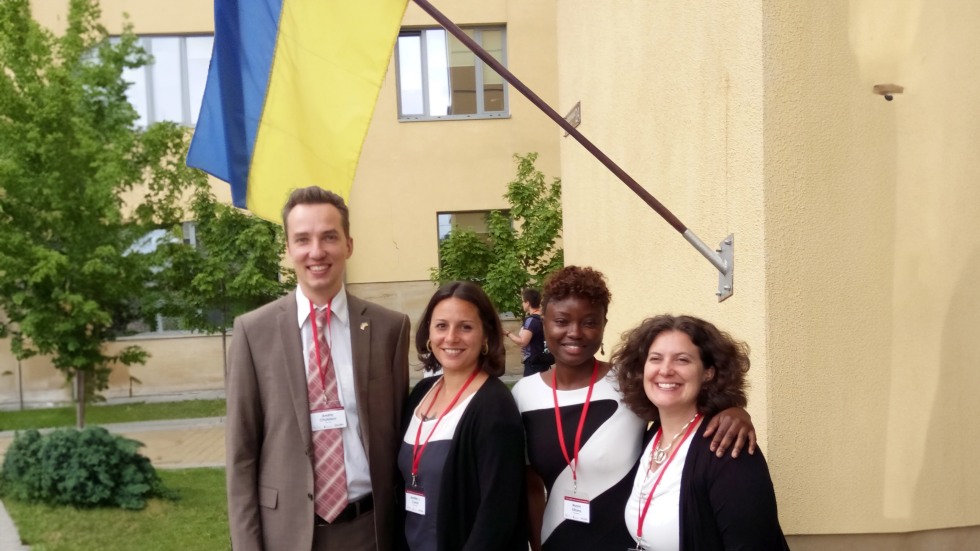Tell us about your current role at the American Cancer Society.
In developed countries, a cancer fight means hope. In low- and middle-income countries, it almost inevitably means pain, suffering, and death. Three days after graduating with my MPH from Brown, I started work as the Program Manager for Global Capacity Development and Patient Support at the American Cancer Society. We support 59 cancer-focused civil society organizations in Kenya and Uganda. The goal is to create a critical mass of NGOs that can successfully work with their governments in fighting cancer and meeting the overwhelming demand for quality prevention and care that the over-strained health systems are unable to meet. We make small, but strategic investments in the countries we work with to help change this situation through improved advocacy, planning, data use for decision making, and increased transparency.
You became involved with the Peace Corps in Ukraine in 2005. Tell us about the work you did and why it was important to you.
Before coming to Brown in 2015, I worked for U.S. Peace Corps/Ukraine for almost 10 years, where I managed the agency’s PEPFAR-funded HIV Program. I started in an administrative capacity, but soon I found that many health inequalities stem from stigma and discrimination. We decided to build our program around fighting stigma aimed at vulnerable populations and educating health professionals. Eventually, I came to realize that, in order to effectively manage health programs, I needed to improve my public health research skills – and that’s why I went back to graduate school.
What are the major barriers you face when attempting to solve healthcare issues within your role? Are they policy oriented? Social? Resource?
From my experience in Ukraine and in Africa, lack of health awareness, severe underfunding of health programs, and corruption are some of the major barriers to health. In the global context, one cannot assume that governments will always act with the best interests of their population in mind, so engaging a multitude of stakeholders, including state servants, civil society, private entities, and international organizations is critical to the success of a large-scale health intervention.
The experience of All-Ukrainian Network of People Living with HIV/AIDS is a great example of success. When the Network was created in 2000, HIV treatment was not available in the country, health workers would loudly announce patients’ HIV test results in crowded clinic hallways, pregnant HIV-positive mothers were advised to get abortions, and getting HIV meant slowly dying in shame. Today, the Network is a major watchdog for Ukraine’s health, an indispensable stakeholder working hand-in-hand with (and holding accountable) the Ministry of Health in launching the first major health reform aimed at turning the outdated, inefficient Soviet-era health care system into a modern public health system. This is a prime example of successful cooperation between the government and international donors, led by patient activists. This is what we are now trying to achieve in the cancer space.


